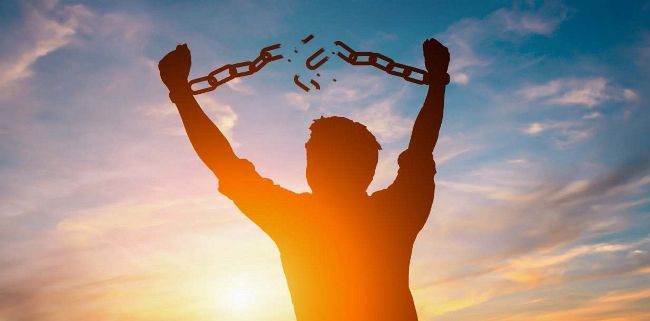Slavery and freedom
The Rev Richard Baxter emphasises the importance of freedom from slavery.

Photo: iStock
MY school history teachers taught me everything they thought I needed to know about slavery.
Their account said slavery was a bad thing causing great sufering, until Britain (inluenced by earnest Christians like William Wilberforce) abolished the transatlantic slave trade. Then, by the end of the American civil war more than 150 years ago, so the story went, slavery was ended and conined to the dustbin of history.
We now know what an inadequate and inaccurate account that is. It omits the complicity of people at every level in our society who were involved in and proiting from the trade in humans. It ignores the varied forms slavery has taken over the years. It fails to recognise that slavery is not a past evil but a present reality for many people around the world, Scotland included. The Bible is full of stories relecting on slavery and freedom. Not all of them make simple or comfortable reading. They occur in real places and real circumstances with real people. Their stories will direct our relections over the next few months.
In his manifesto ofered in the synagogue in Nazareth, Jesus outraged his hearers by talking about setting free the prisoners and the oppressed (Luke 4.18). Paul has no doubt that followers of Jesus are intended to live in freedom, and Christ’s work brings that about. “It is for freedom that Christ has set us free. Stand irm, then, and do not let yourselves be burdened again by a yoke of slavery.” (Galatians 5.1). Freedom is our God-given inheritance and we should work with determination to keep it, enjoy it and use it wisely.
One of the most moving places I have ever visited is a small woodland plot on the grounds of a Presbyterian church in the Shenandoah Valley in Virginia. The church is old in American terms, dating back to the 1740s. During its irst hundred and twenty years, there were slaves in that community. The plot contains a series of unmarked graves for slaves and former slaves, who had been segregated and kept separate from others, even in death. However, God has a way of overcoming barriers like that. At the entrance a simple monument has been erected by the current congregation in memory of their brothers and sisters who were brought as slaves to that place with the following words:
“There is neither Jew nor Greek, there is neither bond nor free, there is neither male nor female: for ye are all one in Christ Jesus. Galatians 3.28”
That powerful reminder that we are not deined by our social status or our situation in life, but by our relationship with Christ, is an inspiring message of hope in a world with too much darkness.
The gospels overlow with people set free from slavery to illness, slavery to disturbed minds, slavery to social exclusion and slavery to sufocating rules. Most rejoice in their new-found freedom, but a few (like the rich young ruler who was enslaved to his material wealth – Luke 18.18-25) refuse to be set free, and go away sad.
God’s plan for your life and mine involves freedom from whatever denies us the chance to be all that God intends to be. It is for freedom that Christ has set us free. Let’s value it, cherish it and use it well. ¤
The Rev Richard Baxter is minister at Fort William: Duncansburgh MacIntosh linked with Kilmonivaig